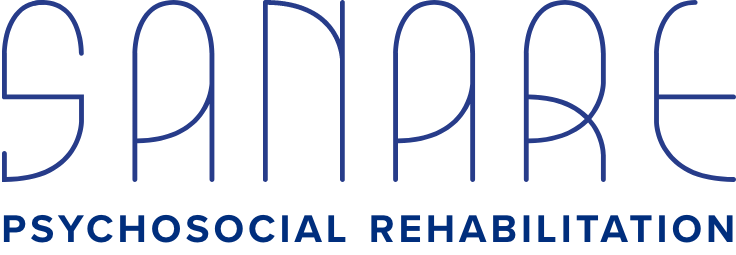Schizophrenia Fact Sheet
Schizophrenia is a serious mental illness that affects how a person thinks, feels, and behaves. People with schizophrenia may seem like they have lost touch with reality, which causes significant distress for the individual, their family members, and friends. If left untreated, the symptoms of schizophrenia can be persistent and disabling. However, effective treatments are available. When delivered in a timely, coordinated, and sustained manner, treatment can help affected individuals to engage in school or work, achieve independence, and enjoy personal relationships.
Schizophrenia involves a range of problems with thinking (cognition), behavior and emotions. Signs and symptoms may vary, but usually involve delusions, hallucinations or disorganized speech, and reflect an impaired ability to function.
Statistics about Schizophrenia
Schizophrenia affects about 1 in 300 people, or 24 million people worldwide
Only 31.3% of people with psychosis receive specialist care
Schizophrenia is typically diagnosed in the late teens to early thirties
Schizophrenia is one of the top 15 leading causes of disability worldwide
Co-occurring medical conditions contribute to a higher premature mortality rate
Nearly half of people with schizophrenia have other co-occurring mental/behavioral health disorders
Symptoms of Schizophrenia
• Delusions. These are false beliefs that are not based in reality. For example, you think that you're being harmed or harassed; certain gestures or comments are directed at you; you have exceptional ability or fame; another person is in love with you; or a major catastrophe is about to occur. Delusions occur in most people with schizophrenia.
• Hallucinations. These usually involve seeing or hearing things that don't exist. Yet for the person with schizophrenia, they have the full force and impact of a normal experience. Hallucinations can be in any of the senses, but hearing voices is the most common hallucination.
• Disorganized thinking (speech). Disorganized thinking is inferred from disorganized speech. Effective communication can be impaired, and answers to questions may be partially or completely unrelated. Rarely, speech may include putting together meaningless words that can't be understood, sometimes known as word salad.
• Extremely disorganized or abnormal motor behavior. This may show in a number of ways, from childlike silliness to unpredictable agitation. Behavior isn't focused on a goal, so it's hard to do tasks. Behavior can include resistance to instructions, inappropriate or bizarre posture, a complete lack of response, or useless and excessive movement.
• Negative symptoms. This refers to reduced or lack of ability to function normally. For example, the person may neglect personal hygiene or appear to lack emotion (doesn't make eye contact, doesn't change facial expressions or speaks in a monotone). Also, the person may lose interest in everyday activities, socially withdraw or lack the ability to experience pleasure.
Symptoms can vary in type and severity over time, with periods of worsening and remission of symptoms. Some symptoms may always be present.
People can describe symptoms in a variety of ways. How a person describes symptoms often depends on the cultural lens she is looking through. African Americans and Latinos are more likely to be misdiagnosed, potentially due to differing cultural perspectives or structural barriers. Any person who has been diagnosed with schizophrenia should try to work with a health care professional that understands his or her cultural background and shares the same expectations for treatment.
According to recent data from the World Health Organization, Schizophrenia affects about 1 in 222 people, about 24 million people worldwide.
Helping someone who may have schizophrenia
If you think someone you know may have symptoms of schizophrenia, talk to him or her about your concerns. Although you can't force someone to seek professional help, you can offer encouragement and support and help your loved one find a qualified doctor or mental health professional.
If your loved one poses a danger to self or others or can't provide his or her own food, clothing, or shelter, you may need to call 911 or other emergency responders for help so that your loved one can be evaluated by a mental health professional.
In some cases, emergency hospitalization may be needed. Laws on involuntary commitment for mental health treatment vary by state. You can contact community mental health agencies or police departments in your area for details.
People with schizophrenia and their families are not alone! Family education and support are available in services through Sanare, and can be helpful in rebuilding relationships weakened by the challenges faced due to the symptomatology of schizophrenia.
Treatment
The causes of schizophrenia are complex and are not fully understood, so current treatments focus on managing symptoms and solving problems related to day to day functioning.
The psychosocial rehabilitation (PSR) model is a good fit for helping people living with schizophrenia gain and maintain as much independence and functioning as possible. The staff at Sanare Colorado has experience working with people with schizophrenia and can offer a range of tools to assist those folks in recovery as well.
By incorporating therapy within the community and in the homes of clients, Sanare clinicians are able to meet clients at the starting point of their recovery. Working with clients step by step allows for a strong relationship to form, which in turn helps those struggling with schizophrenia feel safe to receive the assistance needed to uplift their lives.
Some forms of treatment for people who have schizophrenia include individual therapy and hospitalization. Both therapies have been shown to be effective, however PSR differs from such therapies as it allows for those experiencing symptoms of schizophrenia to receive help in the moment. This fosters a greater sense of independence and enhances their ability to exceed in daily life functioning.
